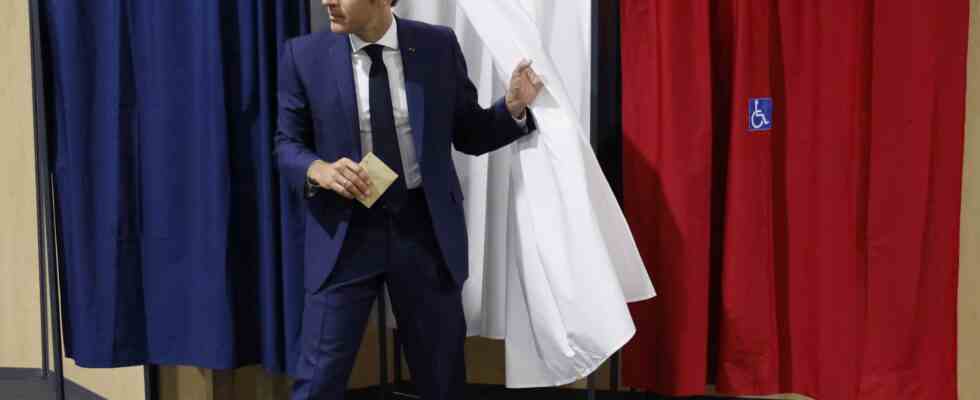Status: 12.06.2022 6:10 p.m
In the parliamentary elections in France, turnout is significantly lower than five years ago. And so it could end up being tight – between President Macron’s camp and a left-wing alliance around Jean-Luc Mélenchon.
Apparently only a few people take part in the parliamentary elections in France. Shortly before the first polling stations closed, it was estimated at 52.5 to 53 percent by five opinion research institutes. According to the French Ministry of the Interior in Paris, participation was 39.42 percent up to 5 p.m. In 2017 it was still 40.75 percent at this time.
In the first round of the parliamentary elections, more than 48 million French people were asked to cast their vote. The polling stations should be open until 6 p.m., in large cities also until 8 p.m. In most French overseas territories, citizens were able to cast their votes on Saturday.
Sabine Rau, ARD Paris, on the parliamentary elections in France
tagesschau24 2 p.m., 12.6.2022
Macron and Mélechon close together
In polls before the election, there was a neck-and-neck race between the governing coalition of President Emmanuel Macron and the left-green alliance Nupes led by Jean-Luc Mélenchon. Should his left-green alliance win an absolute majority, Macron would lose a large part of his political power. In addition to his La France Insoumise party, Mélenchon’s Nupes alliance also includes the Socialists, the Greens and the Communists. Mélenchon had introduced himself as prime minister.
The left veteran Mélenchon had succeeded in uniting the fragmented left camp behind him and attacking Macron. As a shrewd speaker and strategist, he distinguished himself in an election campaign that Macron stayed out of until shortly before the end.
There could be a power sharing
For the President, who was confirmed in office in April, a defeat would have serious consequences: For the first time since 2002, there would be “cohabitation” in France, i.e. the sharing of power between the President and the parliamentary majority. In France, the president is directly elected by the people. He appoints the Prime Minister.
Nevertheless, it seems certain that Germany and Europe can continue to count on France as a reliable partner. There should be no compromises on the pro-European course and the solidarity with Berlin. In the Ukraine conflict, France will also remain an integral part of the West’s united front against the aggressor Russia.

